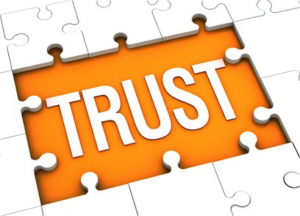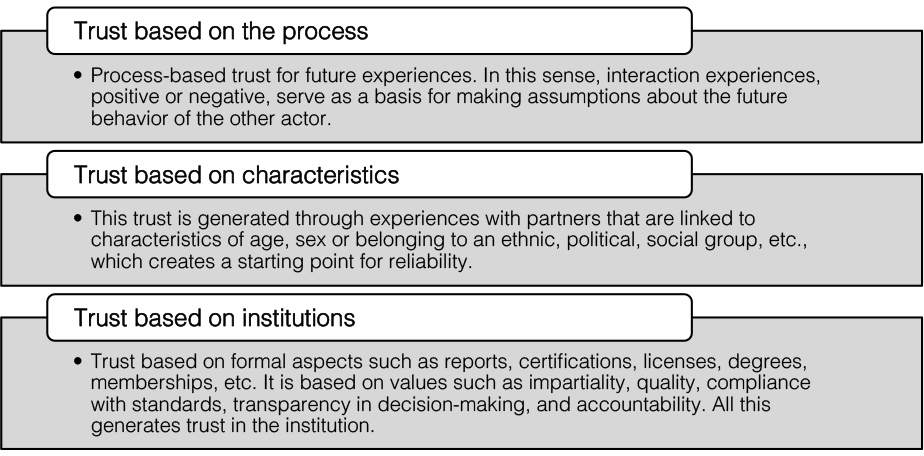

MODULE 2b
4. Trust among partners
Trust is the fuel of cooperation arrangements, and can only be obtained from actors own experiences of cooperation and from the assumption about the prediction of the other actor's behavior.
As a resource, trust helps cooperation systems to be more efficient and reduce their transaction costs, reduce control and coordination efforts, save negotiation time, facilitate the open exchange of information and the acquisition of knowledge, replaces the fixation written contracts and the need to formalize the rules. However, without a minimum of trust, cooperation does not work.
 Lack of trust has several reasons:
Lack of trust has several reasons:
Types of trust in cooperative relationships:


Although trust can be based on formal aspects, it must be built fostering communication and closeness between the actors through social relations, it can arise unintentionally and then encourage and strengthen common action.
A permanent and reliable relationship between the actors of the cooperation system is a stabilizing factor in the relations of the cooperation system.
In this sense, values that support the creation, stabilization and reproduction of trust relationships:
SELF-ASSESMENT
0 of 6 questions completed
Questions:
|
You must specify an email address. |
This questionnaire will allow you to evaluate the competences acquired by studying the module.
You have already completed the quiz before. Hence you can not start it again.
Quiz is loading...
You must sign in or sign up to start the quiz.
You have to finish following quiz, to start this quiz:
0 of 6 questions answered correctly
Your time:
Time has elapsed
You have reached 0 of 0 points, (0)
We just sent you an email with the results of the assessment.
If you do not receive this information in your inbox, please check your spam folder.
1. During initial phase of cooperation the productivity and added value of a cooperation must be demonstrated. The following situations should be avoided: (More than one answer is correct)
2. Concerning the selection of partners, which of the following should be avoided? (More than one answer is correct)
3. The key capacities for the coordination of a cooperation start up process (possibly by external consultants) are: : (More than one answer is correct)
4. Constructive behaviour fostering the consolidation of the cooperation system is characterized by: (More than one answer is correct)
5. Which of the following topics of cooperation need clear normative framework? (More than one answer is correct)
6. True or false? The rules of entry and exit determine which actors take part in the cooperation system. This means defining the inclusion or exclusion of actors, and therefore the incentives to encourage actors to stay in the system.
This project has been funded with support from the European Commission.This publication reflects the views only of the author, and the Commission cannot be held responsible for any use which may be made of the information contained therein.
CO-FARM: Enhancing COoperation amongst FARMing entrepreneurs
Project Number: 2016-1-IE01-KA202-016870

Copyright © 2019


 Čeština
Čeština  English
English  Français
Français  Deutsch
Deutsch  Italiano
Italiano  Slovenščina
Slovenščina  Español
Español